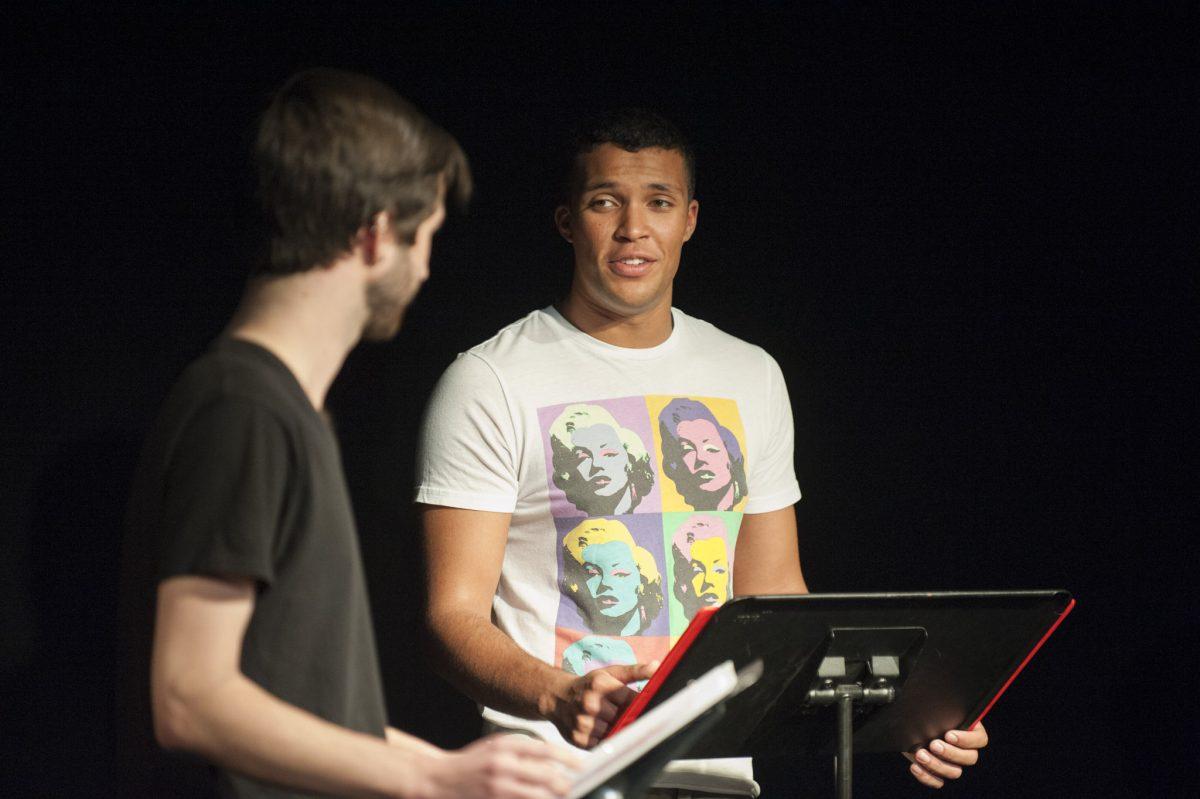Something significant began to stir in Ives 76 on Friday; all shows for “Facing Our Truth,” a small series of 10-minute plays on race and other social justice issues, had been completely sold out to intrigued Sonoma State University students and locals alike.
Each play, although short, was jam-packed with meaning as the topics of race and privilege were addressed and the story of Trayvon Martin was brought to light.
This miniseries has been popping up all over the country in response to Martin’s death and shooter, George Zimmerman’s acquittal.
Sonoma State is the first school in the California State University system to present it.
“The focus tonight will be on the script,” said Scott Horstein, production director of the series, “These students have had only six hours or so of rehearsal.
When one hears how little time the actors had to rehearse for their performance, it can be easy to assume the acting may be subpar, but this was certainly not the case.
Despite the very short time for practice, the acting presented by the students involved was passionate, powerful and professional, which made the message even more real and relatable for the audience.
Actors also showed their musical capabilities in “The Ballad of George Zimmerman,” making for a very involved show.
The series of plays depicted unfortunate situations in which racial stereotyping and prejudice are obviously apparent.
However, many positive messages followed, such as “no one’s life is better, or more important than anyone else’s,” which provoked a lot of emotion from the audience.
Each play was focused on an aspect of racial prejudice that is not commonly talked about, such as the very real dangers of being an African-American male in today’s world.
One eighth of the American population is African-American, yet one half of all homicide victims are African American, according to the American Journal of Medicine.
The performances did not shame those who find themselves stereotyping according to race, but questioned them.
Several questions such as “why does society do this?” and “how can we help?” were brought up in each play. The series has made its way onto college campuses in a very timely manner, since the young adult generation is the group is one that is the heavily affected by societal racial stereotyping.
This generation is also at the reigns of the future, and has the power to put an end to it.
Several plays diminished racial stereotypes, as many genders and cultures, including white women were thrown into Martin’s hoodie to experience the same tragedy themselves.
These characters were then able to bring the audience along to experience it with them.
This method certainly brought attention to the problem at hand.
Some actors were each given specific colors to define the way they acted based on the color’s stereotype.
This specific play made many question the way that they perceive others according to stereotype, as discussed in the facilitated discussion groups after the series.
As race and privilege continues as an issue even in the 21st century, the students involved in this production enjoyed being able to bring this issue to light on campus.
“It’s great that we have the opportunity to do what we love, all while promoting such a positive message,” said performer Bria Gabor.
Although very entertaining, the performances were meant to begin a conversation on campus regarding diversity and prejudice.
Actors of “Facing our Truth” communicated that it’s all too common that society may present an issue, but not dig deeper into its roots.
The department of theatre arts and dance, Black Scholars United and The HUB exposed society’s wound through this series, yet it’s up to students to treat it.



































